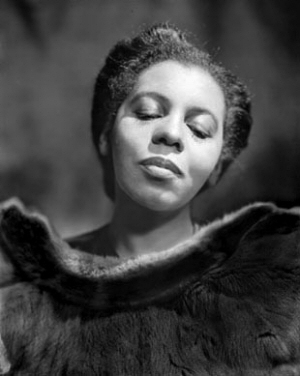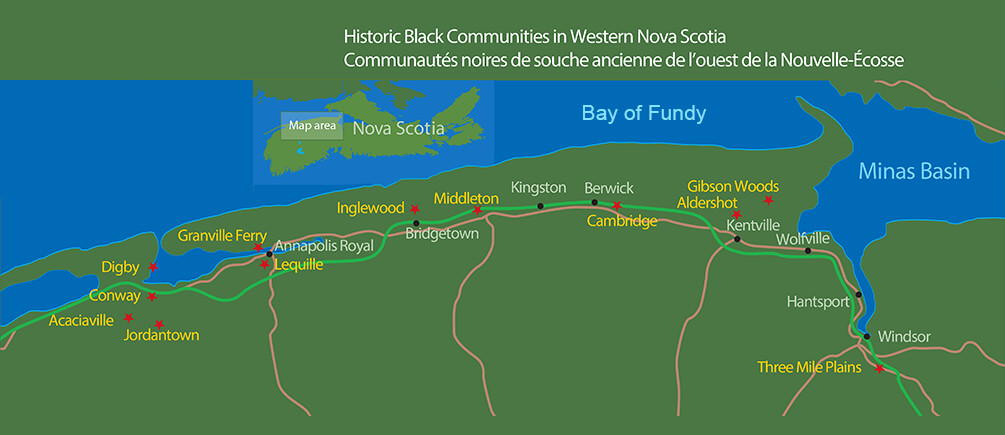We are proud to feature Portia White as part of our Legacy Coffee Series.

Portia May White was born June 24, 1911, in Truro, Nova Scotia, the third of 13 children born to Izie Dora (White) and William Andrew White. She was a Canadian operatic contralto, known for becoming the first Black Canadian concert singer to achieve international fame. Growing up as part of her father’s church choir in Halifax, Nova Scotia, White competed in local singing competitions as a teenager and later trained at the Halifax Conservatory of Music. Her mother was a descendant of Black Loyalists in Nova Scotia, while her father was the son of former slaves from Virginia; he moved to Canada independently. William White attended Acadia University in Nova Scotia, later becoming the first Black Canadian to graduate from Acadia with a Doctorate of Divinity. After World War I, the White family moved to Halifax, and William became the minister of Cornwallis Street Baptist Church.]
Portia White began her musical career at the age of six as a choir member at Cornwallis Street Baptist Church, where her mother was also the musical director. As White grew older, she became the choir director and assisted with church fundraising by singing on her father’s weekly radio show. In an interview later in life, White explained that her love of music and performing had developed early:
“Nobody ever told me to sing, I was born singing. I think that if nobody had ever talked to me, I wouldn’t be able to communicate in any other way but by singing. I was always bowing in my dreams and singing before people and parading across the stage as a very little girl”
As a teen, White entered a local singing competition accompanied by her sister June. The pair performing an aria from Donizetti’s Lucia di Lammermoor, won first prize.
Although White wanted to pursue a singing career, she couldn’t afford professional training at the time and entered Dalhousie University in 1929, studying to become a teacher. From the early 1930s she taught in Africville and Lucasville, two small Halifax communities that were predominately African Nova Scotian, and during this time White was finally able to begin paying for vocal lessons. She competed regularly at the Halifax Music Festival, winning the Helen Kennedy Silver Cup in 1935, 1937 and 1938, until the festival organizers finally decided to award her the cup permanently.
Making her debuts in 1941 – national and 1944 – international, she received critical acclaim for her performances of both classical European music and African-American spirituals. White later completed tours throughout Europe, the Caribbean, and Central and South America.
White sang both classical European music and African-American spirituals were a constant part of her concert repertoire. Alongside English pieces, she performed music in Italian, German, French and Spanish and White’s three-octave range attracted critical acclaim. A critical review in The Toronto Globe and Mail observed White’s “pungent expression and beauty of utterance,” while a critic with the Toronto Evening Telegram said she had a “coloured and beautifully shaded contralto… It is a natural voice, a gift from heaven.” White was compared to noted American contralto Marian Anderson.
Many other members of Portia White’s family went on to achieve distinction in Canadian political and cultural life, including her brothers Jack, a noted Canadian labour union leader; Bill, the first Canadian of African heritage to run for political office in Canada) and Lorne, a regular performer for television show Singalong Jubilee. White also became aunt to Senator Donald Oliver and political commentator Sheila White.
When beset with vocal difficulties and cancer eventually contributed to her retirement in 1952, White settled in Toronto and subsequently taught young Canadian musicians. In 1964, she sang in a command performance for Queen Elizabeth II and Prince Philip, at the opening of the Confederation Centre of the Arts in Charlottetown, Prince Edward Island. This was one of her last major concerts. White died in Toronto on February 13, 1968, at the young age of 56.
White was declared a person of national historic significance by the Government of Canada.


